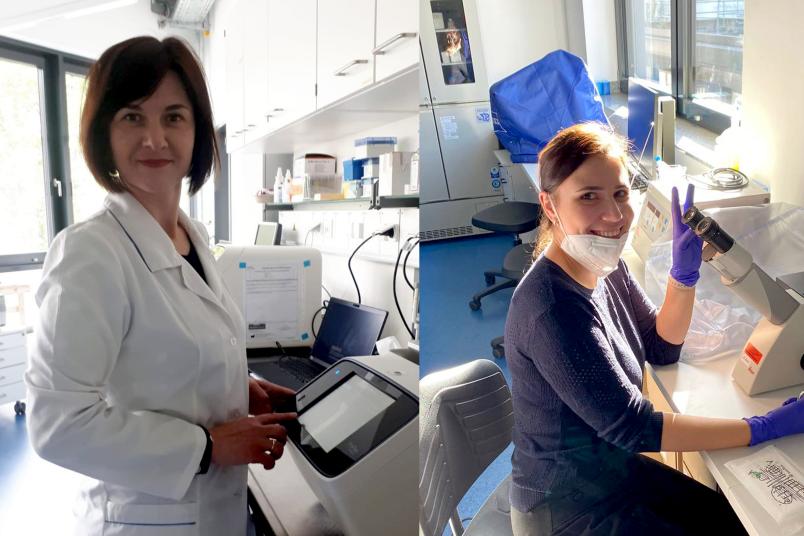
Type 2 diabetes Ukrainian researchers defy the war
Power, water and heating for four hours a day, freezing cold and darkness for the entire night. And yet, researchers from Kyiv carry on with their work and publish their results in an international journal.
Even as the war rages on, a Ukrainian-German research team has succeeded in gaining new insights into the treatment of type 2 diabetes mellitus. Researchers headed by Professor Larysa Natrus from Bogomolets National Medical University in Kyiv cooperated with Professor Nina Babel from Marien Hospital Herne, university hospital of Ruhr University Bochum.
The researchers supplemented the diet of rats suffering from type 2 diabetes mellitus with a combination of propionic acid, a short-chain fatty acid that has an anti-inflammatory effect, and metformin. They found strong evidence that this supplement counteracts the death of nerve tissue cells that is characteristic of the disease.
Insulin is responsible for transporting sugar from the blood into the cells, where it is needed as an energy source. If this is not sufficiently effective, as is the case with type 2 diabetes mellitus, the blood sugar remains too high. One consequence of permanently elevated blood sugar levels is nerve damage. This could be alleviated by the dietary supplements.
Four-day journey for a guest residency in Bochum
From April till the end of August 2022, post-doc researcher Yuliia Klys from Kyiv conducted measurements on tissue samples at the molecular level in Bochum. “It took her four days to get here,” says Nina Babel. While she was away, her colleague Yuliia Osadchuk, likewise a post-doc researcher, took care of the experimental animals in Kyiv and continued the research there. In October and November, the two swapped places. Now, they are back in Ukraine.

With their analyses, the researchers intended to find out whether the dietary supplementation influences a mechanism that is involved in triggering the disease. To this end, they examined tissue samples from the ventromedial hypothalamus. This part of the brain controls several vital bodily functions, including food intake and the sensation of satiety.
“Dysregulation of this brain region can lead to a derailment of sugar metabolism, triggering type 2 diabetes mellitus. A kind of switch plays an important role in this process. It controls whether cell components that no longer function are degraded, even as the affected cells continue to live, or whether entire cells suffer programmed cell death,” explains Nina Babel.

What our colleagues in Kyiv achieved was sensational.
Nina Babel
In earlier studies in patients with chronic kidney disease, researchers headed by Nina Babel had shown that the dietary supplement propionic acid has an anti-inflammatory effect. Before that, studies in patients with multiple sclerosis had also shown that propionic acid leads to an amelioration of clinical symptoms.
Based on these promising results, the research group led by Larysa Natrus together with Nina Babel examined the effect of propionic acid on the switch in the ventromedial hypothalamus and the course of diabetes mellitus. “In rats suffering from type 2 diabetes, propionic acid together with metformin caused the control in the ventromedial hypothalamus to trigger a neuroprotective effect, thus alleviating diabetic nerve damage,” points out Nina Babel, adding: “What our colleagues in Kyiv achieved was sensational!”
Funding